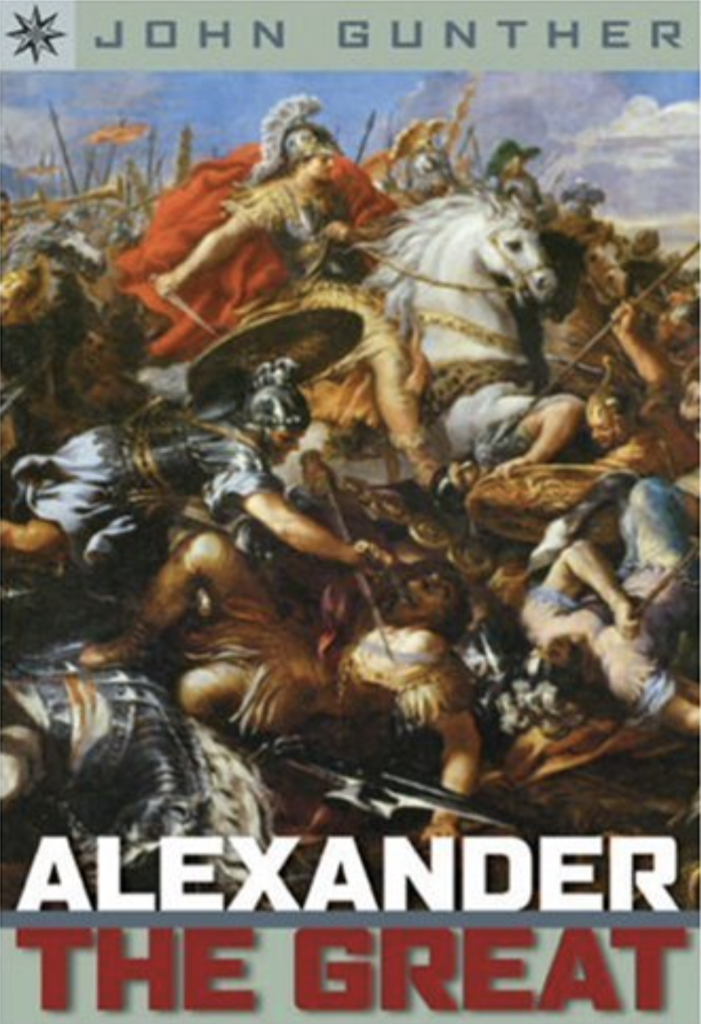“The line of Alexander’s life is bold and sharp. From first to last, from birth to death, it is etched with dramatic clarity. He was born to conquer the world, and everything of importance that happened to him was a step toward the fulfillment of this ambition. But at the same time he had to struggle ceaselessly with his own self, his own wayward character.”

History often remembers Alexander the Great as being in the same category as Julius Caesar, Attila the Hun, Napoleon Bonaparte, and Adolf Hitler. A handful of men who through incredible genius, unparalleled thirst for power, and sheer determination were able to achieve unprecedented world domination. None of these men are remembered as paragons of virtue nor even decent role models, but all of them deserve our attention and some level of respect. Each changed the world in which they lived. Each of these leaders was a complicated man.
“Philip became King of Macedonia in 359 B.C., when he was twenty-three. He was an extremely enlightened king, one of the greatest kings in all history. He is also one of the few examples in history of a great father who was followed by a great son. Usually, for some mysterious reason, the sons of great fathers do not turn out particularly well. Maybe they try too hard to equal their fathers’ reputations, instead of developing their own talents and abilities.”
Prince Alexander was blessed to have a father who cared so much about his kingdom that he cared enough to invest in its future king, the crown prince. Philip was a powerful king in his own right, but he made it his mission to guarantee that Alexander was equally excellent. Not only did he rigorously train the boy’s body and habits, but he employed the philosopher Aristotle to train Alexander’s mind. Chief among the gifts that Aristotle gave to the prince was a love of Homer.
“During these years, however, the tragedy of Alexander also began to take gradual shape. In the midst of glory, he sowed the seeds of his own collapse. After conquests such as no man had ever made before, he disintegrated. This gifted young man, so gracious and gallant on the great majority of occasions, gained practically all that he wanted, and then with crazy selfish recklessness threw it all away.”
This most fascinating story leaps off the page like an exciting novel. John Gunther’s writing is refined and like that of a master storyteller. He tells us just enough of Alexander’s life to make us impressed and curious. And, he tells it in such a way that we are eager to know more.
I listened to this book on audio while I packed for camping and found myself getting so lost in the story that I was looking for extra chores to do to extend my listening. The narrator, Benjamin Becker, also narrated The Sinking of the Bismarck and he is excellent. My children have each read this story over the years and all of them, several years later, remember many scenes with vivid detail. Alexander’s life is memorable, and John Gunther brings it to life for us.
Like many of you, I simply do not have much “extra” reading time. My time is gobbled up by so many projects and clubs. But, if something is in audio, I am usually able to find a way to squeeze it in. Lo and behold, a number of the Landmark books are available in audio. And, one or two more get recorded every couple of years. At one time we had a list on our site indicating which ones we had found. However we found that list was hard to maintain due to the fluctuations in media contracts. Our good friends at Biblioguides, however, have made it their mission to keep those books up to date with reprints and audio options. I decided to purchase every Landmark audio I could find. I went to Biblioguides and used their links to source all of those books. Many of the audios are Sterling Point book reprints.